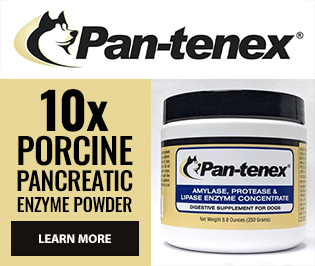Why Digestive Support Is Important for Cavalier King Charles Spaniels
Cavalier King Charles Spaniels are sweet-natured, affectionate companions, but they can also be prone to digestive sensitivities. Their small size, gentle constitution, and slower digestion rate may make them more likely to experience issues like soft stool, gassiness, or food intolerance. Without proper gut support, they may struggle to fully absorb nutrients from their food.
If your Cavalier is showing signs of digestive discomfort, gentle feeding routines combined with digestive enzymes can make a noticeable difference in their overall health and comfort.
Common Digestive Issues in Cavalier King Charles Spaniels
These dogs are known for their sensitive stomachs. They may react poorly to sudden diet changes or overly rich foods. Typical symptoms of digestive trouble in Cavaliers include:
- Loose or inconsistent stools that vary in color or texture
- Frequent gas or occasional tummy rumbling after meals
- Increased hunger despite regular feeding
- Unexplained weight fluctuations even with a stable diet
- Signs of discomfort like lip-licking, pacing, or avoiding food
These issues can often stem from incomplete digestion. Digestive enzymes may help by breaking down food into smaller, more absorbable nutrients.
How Digestive Enzymes Support Cavalier King Charles Spaniel Gut Health
Digestive enzyme supplements can help improve how your Cavalier digests and absorbs their meals. They contain naturally derived enzymes like lipase (for fats), protease (for proteins), and amylase (for carbohydrates).
A high-potency product like Pan-tenex provides concentrated enzyme support that mixes directly with food. Because it is a 10x potency formula, only a small amount is needed per meal to assist with breakdown and absorption, which is especially important for small breeds like Cavaliers.
Feeding Tips for Cavalier King Charles Spaniels with Digestive Sensitivities
When feeding a Cavalier King Charles Spaniel with digestive issues, consistency and simplicity are key. Here are a few ways to help:
- Feed two small meals per day rather than one large meal to reduce digestive strain
- Choose easily digestible food with moderate fat content and limited ingredients
- Moisten food and let sit for 10 to 15 minutes after adding enzymes to improve palatability and effectiveness
- Track stool quality using the Dog Enzyme Digestive Health Stool Tracker
- Refer to the article How to Mix Enzyme Powder with Your Dog’s Food for detailed preparation steps
Monitoring Progress in Your Cavalier’s Digestive Health
Every dog responds differently to dietary changes and digestive support. Some Cavaliers show improvement within a few days, while others take a bit longer. Monitor changes in stool consistency, energy levels, and appetite to gauge progress.
If stool remains soft even with enzyme use, consult the article What If My Dog’s Stools Are Still Soft with Pancreatic Enzymes? for next steps.
Final Thoughts
Digestive issues in Cavalier King Charles Spaniels can often be managed with the right mix of diet, routine, and targeted enzyme support. Pan-tenex offers high-potency enzyme powder designed for dogs like yours, helping to improve digestion, reduce discomfort, and support overall wellness.
For more guidance, visit our full library of Help Articles or contact us with questions about your dog’s feeding routine or digestive health.

